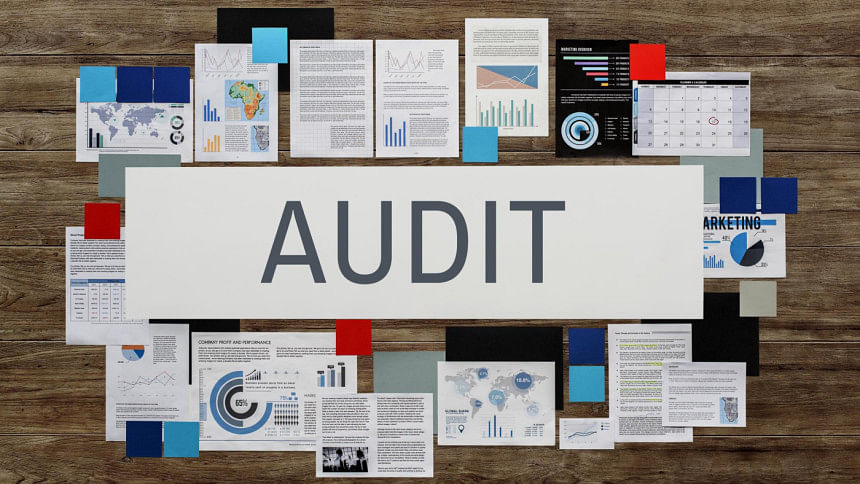Audit reform requires effective institutions, not rivalries

A recent article titled "Audit Gaps, National Traps," published in The Daily Star by the president of the Institute of Cost and Management Accountants of Bangladesh (ICMAB), has generated considerable reaction within the accounting and audit community. While it raises some legitimate concerns about audit coverage and governance gaps in Bangladesh, it unfortunately presents a somewhat fragmented and misleading narrative about the audit profession and the respective mandates of Institute of Chartered Accountants of Bangladesh (ICAB) and ICMAB.
Bangladesh's audit ecosystem, though in need of reform and expansion, should not be reduced to a turf war between professional bodies. The responsibility of audit is a public trust function, not a marketable commodity. Calling the current statutory audit system a "monopoly" ignores global and local rationale for regulated entry, technical control, and accountability. Auditors are not vendors. They are fiduciaries accountable to the public, the regulator, and capital markets.
The claim that audit fees have "surged under monopoly control" is misleading. Audit quality, independence, and due diligence come with a cost. Regulatory frameworks worldwide purposefully restrict audit licensing to ensure quality and trust, not to promote competition like telecoms or ride-sharing apps.
Moreover, the article selectively compares Bangladesh with the UK, Canada, and Australia, where there are unified bodies like CPA Canada or Institute of Chartered Accountants in England and Wales to license auditors. But these institutions enforce rigorous audit training, peer review, and disciplinary regimes. Their structures cannot be casually cited to argue for audit eligibility without addressing the compliance burden, enforcement infrastructure, or educational equivalence.
In Bangladesh, the Financial Reporting Act 2015 clearly distinguishes statutory audits from general financial reporting. It recognises both ICAB and ICMAB as professional accounting bodies, but it also vests the authority of statutory audit in line with Companies Act provisions and the Financial Reporting Council (FRC). ICAB members, through their articleship-based practical training and ongoing practice review, fulfil audit-specific experience mandated by global bodies like the International Federation of Accountants (IFAC). While ICMAB members gain valuable managerial experience, it is not a substitute for statutory audit competency.
Allowing CMA members to audit non-public interest entities (PIEs) or NGOs, as proposed, may appear pragmatic, but it risks fragmenting oversight, duplicating regulation, and confusing users of financial statements. Even in Pakistan, where CMAs have limited audit rights, the scope is tightly controlled and contextually distinct.
The suggestion that audits market entry should be widened solely to reduce fees or fill a numerical gap also misses the mark. Bangladesh has around 500 practising CAs, but the problem isn't a lack of professionals; it's the lack of regulatory enforcement, automation, and systemic transparency. Opening audit licenses without strengthening supervision could deepen compliance risks.
Instead of advocating for professional inclusion through conflict, the way forward is collaborative reform. Joint training initiatives, capacity building, technology integration, and expanding the scope of cost audit can create a stronger foundation. If there is a desire to revisit audit rights, it must be done institutionally, with FRC and parliament leading the debate.
Let us reform together Bangladesh's financial future, which depends on accountability.
Imran A. Hasan FCA is a member of ICAB and partner at A. Wahab & Co.
Views expressed in this article are the author's own.
Follow The Daily Star Opinion on Facebook for the latest opinions, commentaries, and analyses by experts and professionals. To contribute your article or letter to The Daily Star Opinion, see our guidelines for submission.

 For all latest news, follow The Daily Star's Google News channel.
For all latest news, follow The Daily Star's Google News channel. 








Comments